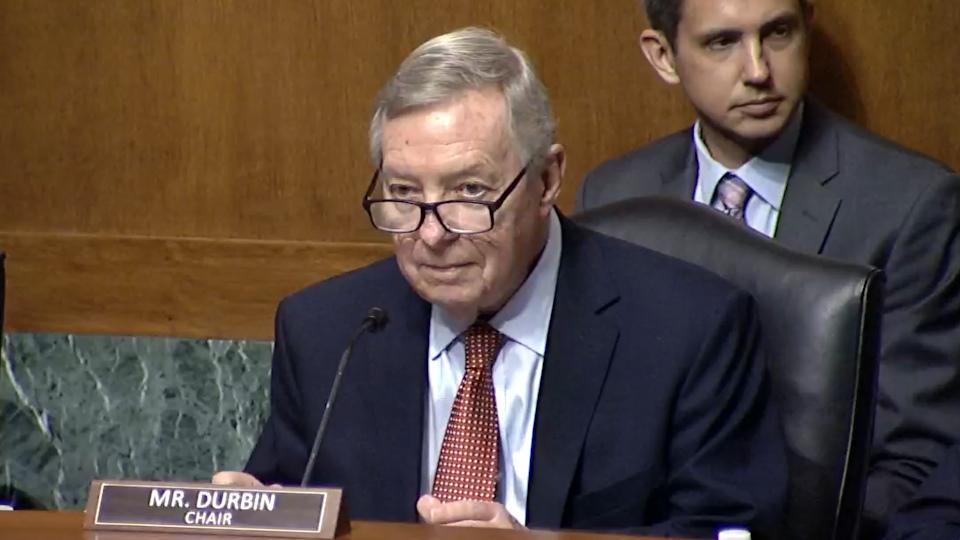US senators accuse pharma firms of abusing patent system

Senate Majority Whip and Senate Judiciary Committee chair Dick Durbin (D-IL)
Lawmakers across the political divide have accused the pharma industry of abusing the patent system to keep the prices of their products as high as possible in a combative meeting of the Senate Judiciary Committee.
In their sights are strategies that are claimed to game the patent system to extend monopolies and block lower-cost generic and biosimilar drugs from entering the US market.
Senate Majority Whip Dick Durbin (D-IL), who chairs the committee, said in an opening statement to the hearing that in 2022 drug manufacturers raised the prices of more than 1,200 medicines by an average of 32%, four times the rate of inflation.
He claimed that all too often steep prices result from “skilled lawyers manipulating the patent system and skirting our nation’s competition laws”, pointing to AbbVie’s use of a ‘patent thicket’ to prevent competition to immunology blockbuster Humira (adalimumab) – first introduced in 2002 – for more than 20 years. Over that period, AbbVie racked up more than $200 billion in revenues from the drug.
“A recent study found that the top 10 best-selling drugs in 2021 had a combined 1,429 patent applications filed, 72% of which were filed after the FDA approved the drug for sale,” added Durbin.
“You know what’s going on […] in this business. The patent system is being manipulated and used by attorneys to extend patent life and avoid generic competition that will bring down costs.”
That view was echoed in testimony by David Mitchell, founder of Patients For Affordable Drugs NOW, who claimed strategies like product hopping, patent thicketing, pay-for-delay deals, and misuse of FDA citizen petitions as prime examples of tactics used by the industry to reduce competition and keep prices higher for longer.
Mitchell, who has an incurable blood cancer, said that Medicare co-pays meant that, until recently, his treatment cost him thousands of dollars per year – including more than $16,000 just for Bristol-Myers Squibb’s Pomalyst (pomalidomide) alone. His total out-of-pocket costs have been cut to around $3,300 a year, however, thanks to a cap introduced with the Inflation Reduction Act.
“I need innovative new drugs. I care deeply about innovation and new drug development. My life depends on it,” he told the hearing. “But my more than 13-year journey as a cancer patient has taught me that our current system, which relies on competition and market forces to lower drug prices after a period of monopoly pricing, is not working. I’m here to ask each of you to fix it.”
Representing the industry group PhRMA, Jocelyn Ulrich, its vice president of policy and research, said that it does not support any form of anticompetitive behaviour and claimed that the patent system has sufficient “checks and balances” to deter abuse.
She added that it is no accident that the US leads the world in R&D into new medicines, a situation that results from “strong and reliable intellectual property protections that give companies the certainty they need to make the long-term investments required to bring new medicines to patients.”
DTC ads also criticised
Durbin also levelled an attack on direct-to-consumer (DTC) advertising of drugs by pharma, pointing out that the US and New Zealand are the only two countries in the world that allow this practice.
“The pharmaceutical industry spends $6 billion – the size of the entire FDA budget – to fill the airwaves with brand-name drug ads,” he said, contending that is inflating patient demand for certain high-price medications, even if a lower-cost generic or alternative intervention may be more appropriate.
Earlier this Congress, a package of bills advanced unanimously out of the Committee to lower prescription drug prices is awaiting a vote in the full Senate, including the Interagency Patent Coordination and Improvement Act introduced by Senators Durbin and Thom Tillis (R-NC).













